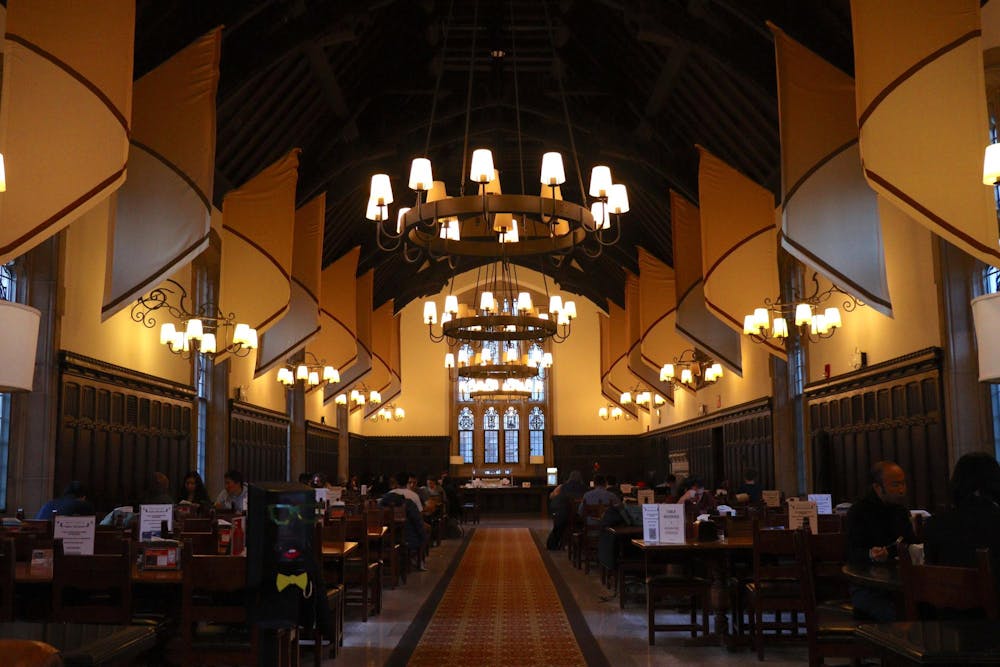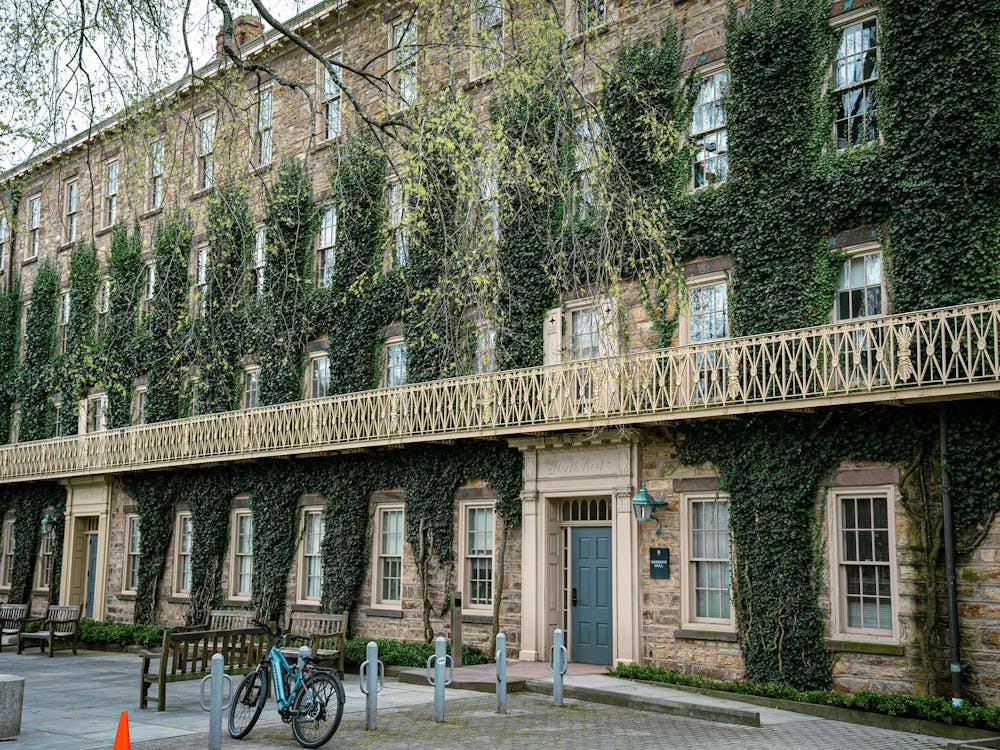“Potato Salad contains alcohol,” reads the potato salad label in the dining halls. “Teriyaki Sauce contains alcohol,” reads the Teriyaki Sauce label in the dining halls. “Shrimp contains alcohol,” reads the … you get the point, right?
Although these labels are familiar to many of us, a lot of students, myself included, tend to simply overlook them as we fill up our plates. The majority of the student body rarely thinks twice about what ingredients are used, where they come from, or the manner in which they were prepared. However, for Muslim students who abide by halal dietary guidelines, such questions can greatly impact their decisions on where and what to eat.
Despite growing efforts to increase halal food accessibility on Princeton’s campus, Muslim students are still greatly restricted in the meals they can eat. It is time for the University to improve its range of dietary offerings and create higher-quality access for Muslim students on campus. In the short term, this might begin with altering some of the ingredients included in current recipes, but ultimately, the University should fundamentally work towards creating a space on campus that prioritizes Halal dining requirements, so that students might enjoy a broad variety of different Halal food options daily.
For context, “halal” is an Arabic word that refers to anything lawful or permissible under the Islamic faith. In relation to food, there are several such restrictions against different ingredients, the most common of which include pork meat, any form of alcohol or alcohol-containing product, and meat that was not properly slaughtered according to Islamic belief.
Over the past few years, Princeton dining halls have gradually increased their halal food options, with halal grilled chicken and meat now available on rotation at certain grill stations and by request at others. Efforts have also been undertaken to improve accommodations specifically during the month of Ramadan, a traditional month of worship in Islam categorized by fasting until the setting of the sun. Both of these efforts represent strong first steps by the University to better serve of Muslim students. Still, Princeton Campus Dining continues to fall short.
Above all, the halal offerings continue to remain restricted on dining hall menus as cafeterias continue to regularly serve pork-based entrees along with sides that incorporate alcohol as an accessory ingredient. Beyond the halal burgers and halal grilled chicken, viable and consistent options for Muslim students remain few and far between.
Furthermore, as many of my Muslim friends have expressed to me, poor coordination of menus between cafeterias presents additional problems for students trying to organize their mealtime plans. When dining hall menus are not accurately presented online, students may arrive at a cafeteria, only to be dissatisfied by the offerings they find. Inaccurate labels that fail to show whether the ingredients are halal further exacerbate this issue, forcing Muslim students to constantly question and doubt the components of what is being served.
Of course, the problem becomes even worse during periods of the year when dining halls have limited menus. While I and other new students were on campus this summer for the Freshman Scholars Institute, Choi dining hall was the only cafeteria serving food. Due to the lacking options, I frequently watched my friends and peers resign themselves to eating the same meals again and again.
In order to address this issue, dining halls should undertake easy and doable short-term steps to improve the dining experience for Muslim students. One such step might include reworking their schedules to be more clear and transparent, ensuring that all halal meals are properly labeled both in-person and through online services. Dining halls can also explicitly identify halal entrees served for the week, following a model pioneered by the Muslim Student Association (MSA) a few years ago. Such approaches might save students the trouble of worrying whether the dining hall that they are planning on attending will serve halal food, aside from the usual grilled chicken and burgers. Simultaneously, the University can also make the switch to halal-certified meat suppliers that would rid students of the worry about whether they can eat the meat used in a dish or not and expand menu options to increase variety.
However, beyond small scale changes, this daily dilemma for Muslim students could be solved entirely by creating a space on campus entirely dedicated to serving of Muslim students, including but not limited to providing a menu of entirely halal food. After all, the Jewish community has a dedicated space in the Center for Jewish Life (CJL) which ensures that Kosher dining options are constantly available for students on campus. Furthermore, spaces for Kosher dining are well-invested-in. Not only is the CJL currently undergoing an expansion to further increase the space and options available, but a new Chabad house with another Kosher dining area is freely available just one block off campus.
Similar to the Jewish community, Muslim students also face several dietary restrictions in accordance with their faith. However, they lack a comparable space to enjoy food without having to worry about whether or not it satisfies halal requirements. At present, there is no University affiliated co-op dedicated to serving halal food. There is no halal eating club. There is no halal dining hall. There are no spaces where Muslim students’ dietary needs are truly foregrounded by design. For students who follow halal dining restrictions and constantly have to concern themselves over where and what they will eat, such a space is not a privilege but rather a necessity that has been long overlooked. Accordingly, the University should treat this issue with the seriousness it deserves.
Beyond smaller solutions, the essence of a halal dining hall lies in providing Muslim students with the same access to food — and the same peace of mind to freely choose a variety of offerings without uncertainty or concern. A halal dining hall would improve the quality of life for Muslim students while also allowing non-Muslim students to enjoy the same meals as their friends in a space that fosters the true accessibility and diversity that our university community seeks. It must start with proper planning in the dining halls and creating a mix of halal and non-halal entrees to ensure a variety of offerings all around, and it must end with the creation of a space where Muslim students can enjoy food the same as the rest of us — without worries.

Jorge Reyes is a freshman opinion contributing writer from Louisville (Loo-uh-vuhl), KY, and can be reached at jr7982@princeton.edu. Feel free to send your beef, halal or non-halal, his way.








